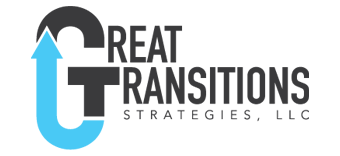Bobby feels his performance is worthy of promotion after two years in his job. Today he had a conversation with his boss during his semi-annual review and brought up the topic. His boss’s response was that he has not shown the leadership expected of one ready to be promoted.
His first thought was; Leadership, I am buried in the organization, how in the world am I supposed to show leadership? So, he asked, “what should I be doing?”. The answer was not very encouraging. She told him to do the things that leaders do and be visible.
Understandably, he left her office frustrated. His thoughts: I need more specific guidance. I don’t know what she is talking about and by the way, whatever I do will not work since I am not in charge.
It is not uncommon for me to hear such stories from clients looking to progress in their careers. The question they want to be answered is: How can I lead when I am not in charge? To that I have them address two essential questions:
- How am I leading myself?
- How am I seen as a leader today?
Leaders must be comfortable with leading themselves before becoming comfortable leading others. In reality, every leader has to answer to someone. How did they get to their position? They probably demonstrated some leadership acumen prior to promotion.
Let’s transition from Bobby to you. I propose starting by writing your definition of leadership. After all, that is what you are after isn’t it? Here is mine:
“The art of positively influencing others to unite and achieve common goals”
Here is an assessment of my definition. First, leadership is an art, not a science, everyone does it differently, using their own techniques and methods. Second, it is about influencing others. Leadership is not about standing in front and giving directions; it is about being a positive influence. Lastly, it’s uniting others to accomplish a common objective. To me the most important elements of this definition are that leadership is about influence and accomplishment, not position and accomplishment. That means anyone at any level can be a leader.
What is your definition of leadership?
______________________________________________________________________________
What are its key elements?
______________________________________________________________________________
Congratulations. You just created a vision for your leadership. My assumption is your definition said more about motivating, inspiring, and shaping others than about your position or authority level.
Now, assess yourself to determine a realistic view of you, the leader. What are your skills, tendencies, likes/dislikes, and strengths? Measure yourself against your definition. On a scale of 1-10 grade yourself on leading yourself.
Next, how well do you meet your definition with others? How do we determine that? We ask what is it like to be on the receiving end of your leadership. We ensure you address how well you lead yourself. For me, I ask how well I influence, unite, and achieve results when leading others. Because they are the key elements of my definition. What do you need to ask?
That is the starting point. Step two, build a leadership development plan. It includes goal setting, specific skills to develop, reading to complete, and most importantly actions to take, assess, and be accountable to.
So, how do you lead when you are not in charge?
You develop your ability to influence others and use it to be a positive force to accomplish common goals as a team.
If you lead yourself well and develop your ability to influence others, you will be on the path to being a leader regardless of your level, line worker to CEO. People may listen to authority – leaders of position however, they follow leaders who are a positive influence – leaders of voice.
Be a leader of voice – a person who influences, motivates, and inspires others.
Let’s fast forward to Bobby’s conversation with his boss in six months, it may go something like this. Over the past six months we agreed what my leadership development should look like and here are the results. My definition of leadership is this: ____________. I received feedback from every team member and worked to specifically contribute to my team in this manner: __________. The results have been ___________ and you have given me additional responsibilities. I am ready to move to the next level and continue my growth.
What can you do to create a conversation like this in your future?






